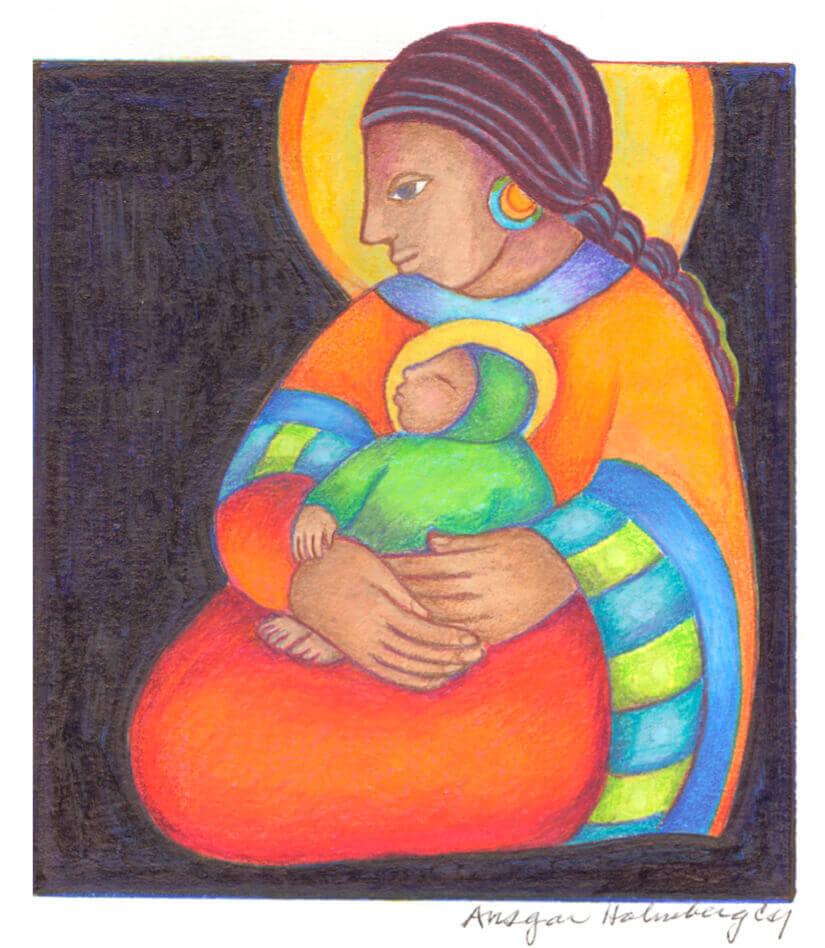
Sunday’s first reading is the passage from the prophet Isaiah cited in Sunday’s gospel. In this passage Isaiah confronts a faithless young king with a promise that Israel’s faithful God will one day send a king named Emmanuel, God-with-us, to the people.
Ahaz is king of Judah (2 Kings 16). His reign begins in 735 B.C. when Ahaz is about 20 years old. That same year two neighboring kings put pressure on him to rise up against Assyria with them. They threaten to seize Ahaz’s throne if he does not join them. They want his treasury and army.
Historically, Ahaz has at least three options. As the prophet Isaiah recommends, he can trust God, sit tight, and let the threat of his two neighbors fizzle. Or, second, he can join the two kings against the rising superpower. Or, third, he can turn to Assyria to protect him against the two kings who threaten him. The latter course means inviting the fox into the chicken coop.
In the verses just before Sunday’s reading, God directs Isaiah to assure Ahaz that God will be faithful to him—option one. “Don’t let your heart be faint because of these two upstarts from the north! They are only smoldering sticks, and they will quickly burn out. If you believe and stand firm, your reign will survive” (Isaiah 7.4,9).
As Sunday’s reading begins, Isaiah invites Ahaz to ask for a sign of God’s fidelity.
Ahaz is a faithless king.
The Holy One spoke to Ahaz, saying: Ask for a sign from the Holy One, your God; let it be deep as the nether world, or high as the sky!
But Ahaz answered, “I will not ask! I will not tempt the Holy One!”
Then Isaiah said, “Listen, O house of David! Is it not enough for you to weary human beings, must you also weary my God? Therefore the Holy One will give you a sign: a young woman shall be with child, and bear a son, and shall name him Emmanuel.”
Isaiah 7.10-14
Ahaz refuses a sign and reveals his hand. The story of his reign tells us that Ahaz takes the third option and approaches the king of Assyria, saying, “I am your servant and son. Come up and rescue me from the hand of the king of Aram and from the king of Israel, who are attacking me” (2 Kings 16.7).
Isaiah is against Ahaz’s alliance with Assyria, which will cost him tribute from the royal treasury and which ultimately will mean allegiance to Assyria and Assyrian gods.
The child Emmanuel is the sign Ahaz will not ask for. Emmanuel is the sign that God will save the people from their enemies and keep the promise to the house of David.
Many Christians today are unaware of the Old Testament background of this passage. Christians assume Isaiah foresees the birth of Jesus, and do not know that he is addressing events in his own time.
Jesus’ followers drew on these holy writings to articulate Jesus’ identity and significance for their lives. They saw in Isaiah’s prophecy of Emmanuel a passage that expressed who Jesus was—God-with-us, the sign of God’s faithful presence among them. They saw in Mary, the young woman in Isaiah’s words.
In this Emmanuel prophecy and also in Isaiah 9 and 11, which we read during Advent in Cycle A, early Christians reinterpreted their Jewish scriptures in the light of Jesus’ coming and asserted the kinship between earlier Israelites and themselves. They were Jews who had come to believe
Jesus was the messiah for whom they had long been waiting.
- What name do you give the child whose birth we celebrate this Christmas?
- If you were invited to give the Christmas sermon, how would you express the significance of Jesus’ whole life to the human race?
